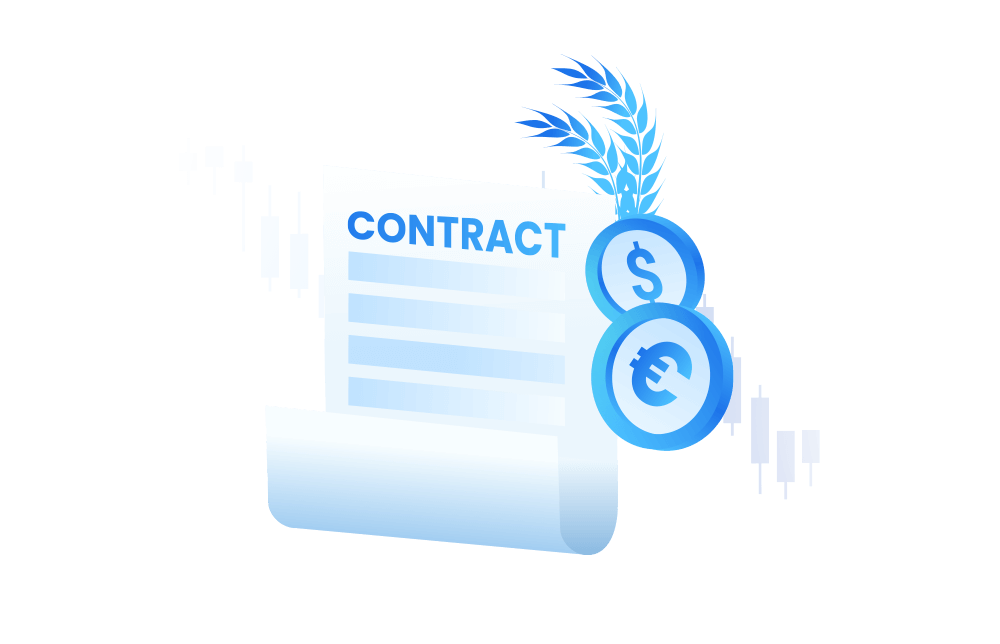What Are Futures and How Do You Trade Them?
Date Modified: 3/22/2023
Though it might sound paradoxical due to its ‘futuristic’ name, Futures trading is actually arguably one of the oldest forms of trading. Some sources even claim that Futures can be traced back to Japan’s Dojima Rice Exchange in 1697, which is widely regarded as the precursor to present-day futures markets.
But what exactly is Futures trading, what are Futures contracts, how do you trade Futures, what are Futures markets, and what changes have this ancient form of trading undergone in the past couple of years?
What Are Futures Contracts and How Do Futures Work?
Futures are financial contracts in which two parties, usually a buyer and seller, agree to buy or sell (transact) a financial asset like a commodity, currency, or index, at a fixed price and time in the future. In other words, two parties enter into an agreement with one of them buying a Future's underlying asset, and the other selling it later at a specific price and time in the future, regardless of the prevailing market price at the time.
Additionally, when entering into a Futures contract, there is no need to pay the full price of the underlying asset in advance, rather, one is required to buy a fraction of the price, known as margin, which can vary from one Futures provider to another depending on the underlying financial asset among other factors.
What Is a Futures Market?
Futures markets are exchanges in which participants buy or sell an underlying asset on a specific date in the future. The Futures market is multifaceted and diverse as it allows access to a myriad of global financial markets ranging from commodities to cryptocurrencies, and Forex to interest rates and indexes.
Additionally, as mentioned above, the Futures market is one of the oldest markets to date, and they even go to 17th-century Japan. Nonetheless, the first recollection of a modern Futures market similar to the one we know today goes back to 1840s Chicago, whereby the city became the hub of modern Futures Trading due to the Chicago Mercantile Exchange (CME), which is still regarded as the world's most influential Futures Exchange. Other prominent examples of a Futures market include the New York Mercantile Exchange (NYMEX), and the Chicago Board of Trade (CBoT), among others. Plus500’s Futures trading platform allows traders access to some of the biggest Futures exchanges in the world like EUREX, CME, COMEX, NYMEX, CBOT, MGEX, and ICE.

Are Futures a Type of Derivative?
Yes. Futures are a type of derivative contract agreement to buy or sell a specific commodity asset or security at a set future date for a set price. The reason Futures are considered derivative contracts is that they derive their value from the underlying asset. That is to say that the Futures’ value depends on the underlying asset.
Pros and Cons of Futures Trading
Advantages of Futures Trading
As with every type of trading, Futures contracts have their own pros and cons. Perhaps one of the most important advantages of Futures trading is the fact that Futures give traders access to a plethora of financial markets from cryptocurrencies to commodities and forex to interest rates and indices. Moreover, through Futures traders and investors can speculate on the price movements of the underlying instruments thus potentially benefiting from price swings depending on their position.
Futures are also considered highly liquid especially when talking about commodities Futures or Forex and Indices. In addition, Futures contracts can be used to help protect companies against adverse price movements by hedging raw materials or products. Moreover, Futures do not require one to pay the full price of the underlying asset in advance, but rather, pay a certain amount called margin. But that’s not all, Futures are leveraged which means that you may be able to magnify your gains and losses if the price of the underlying asset goes along with your position.
Disadvantages of Futures Trading
Nonetheless, the same aforementioned advantages can act as potential pitfalls as well. For example, while leverage may increase one’s gains, high leverage may also magnify losses if the prices go against the predictions and lead to rapid price changes. In addition, hedging with a futures contract may cause a company to miss out on price movements that are beneficial to it. Another disadvantage of Futures trading is that they have an expiration date. As the expiration date approaches, the contract prices may become less attractive. The result may be that a futures contract even becomes valueless at some point.
Why Trade with Plus500?
Aside from the aforementioned advantages, Plus500 offers its traders exclusive perks. Starting at a minimum of $100, Plus500 provides traders with access to the Futures market with attractive and low trading fees. In addition, Plus500 traders get to enjoy a free and unlimited demo account mode which allows them to test the waters of Futures trading in real market conditions without spending their real money. Plus500 also offers 24/7 dedicated customer service for any inquiries or concerns.
How Much Money Do you Need to Trade Futures?
There’s no rule of thumb when it comes to the money needed to trade Futures as the amount of money needed to start trading Futures is susceptible to change and depends on the platform and product in question. Using Plus500’s trading platform, for example, you can start trading Futures with as little as $100 for micro contracts. You may also test the waters of Futures trading in real-market conditions using Plus500’s free and unlimited demo account.
